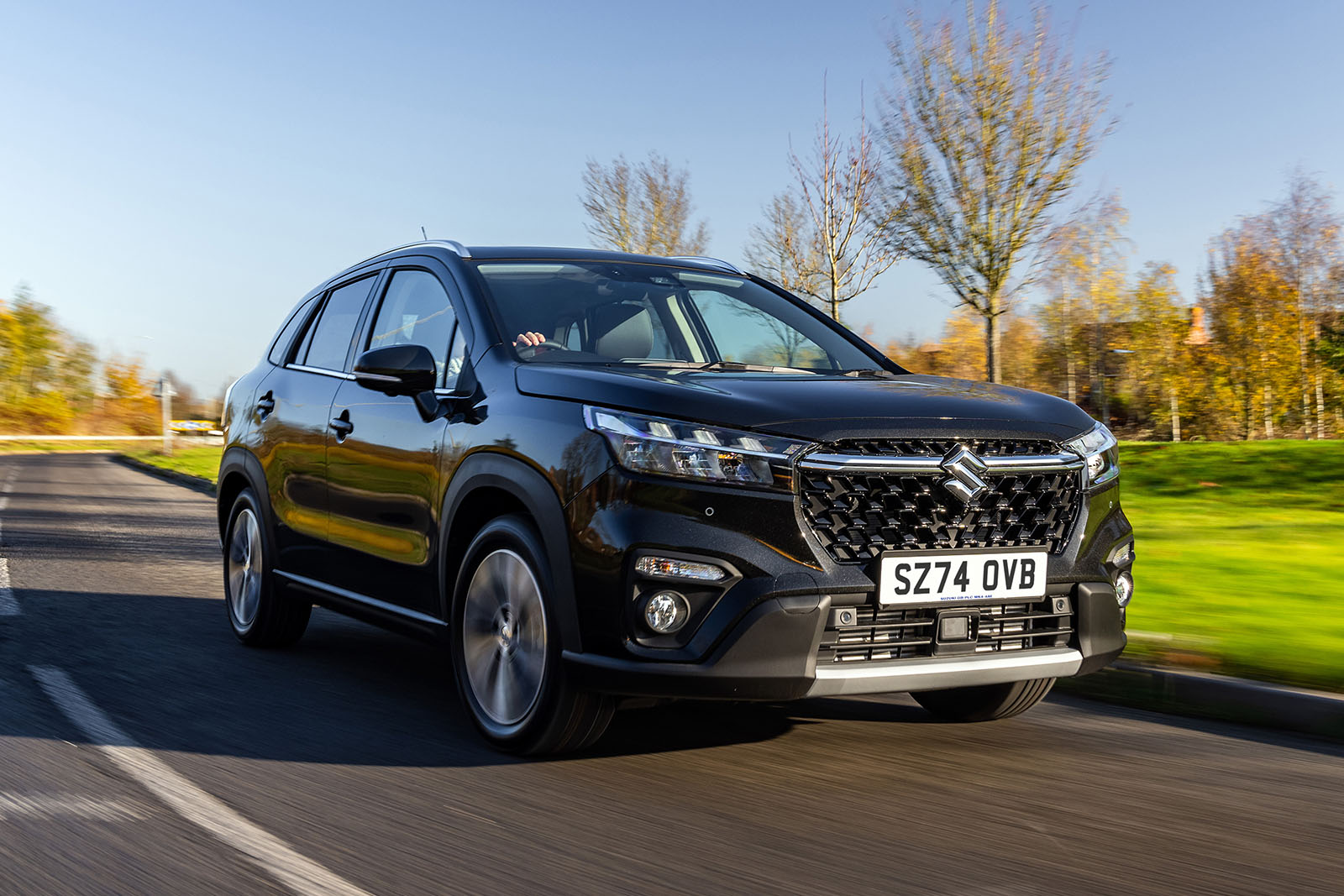On the outside, this S-Cross may look dramatically different from the model it replaced, but save for the more modern infotainment system and a little bit of rubberised material on the dashboard, the interior looks largely as it did in 2013. Back then, we described it as “cheap and cheerful, but convenient and credible, too”.
About 75% of that still applies. It still feels cheap – very much so – and it’s still convenient and credible, but in the context of other cars available in the here and now, it’s about as cheerful as a funeral. A number of years ago, that may have been the norm outside the premium manufacturers, but today even at the cheaper end of the market, Dacia shows it’s possible to delight with modern design and the odd interesting material texture or colour without compromising usability or inflating the price.
It all looks very drab inside the S-Cross, but at least the ergonomics are sound. The seats are decent enough. You sit high, with a commanding driving position that will be comfortable for most people thanks to plenty of adjustment in the steering column and seat. There is no adjustable lumbar support, but that didn’t pose an issue for most testers even on long drives.
Adults on the back seat will have reasonable leg room, as the S-Cross is slightly more generously spacious here than even a Nissan Qashqai, but head room is tight with the panoramic sunroof that comes as standard on Ultra models. The backrest is adjustable, but the difference is so slight that it’s barely apparent in the photos.
The rear-seat environment of the S-Cross also feels very barren. There are no ventilation openings and no USB ports, which is quite a major omission in a family car. The boot is also adequate, but no more. It’s smaller than the Qashqai’s, and other than a movable boot floor and a 12V power port, has no special features like hooks or dividers.
The lane-keeping assistance doesn’t always seem to work on country roads, especially those with faint white lines, but it doesn’t intervene unnecessarily. Meanwhile, on the motorway, the lane following is very competent at centering the car. The adaptive cruise control works reasonably well, too. And if none of these systems is to your liking, they can be easily neutered using physical buttons on or to the right of the steering wheel.
Suzuki S-Cross infotainment system
Suzuki developed a completely new infotainment system for this S-Cross, but it’s still far from brilliant, being devoid of features, fast response times and graphical quality.
However, the built-in functions are actually quite logical to operate, and the navigation is better than on some much more expensive cars, with clear directions and an easy way to select alternative routes.
And as you would expect in any modern car, there is Apple CarPlay and Android Auto, and both are wireless as standard. Frustratingly, there is no option of a wireless charger, so you’ll still have to plug in your device to stop it from dying on a longer journey. Even wired charging ports are less than abundant, with just one USB-A port and one 12V port in the cabin.

